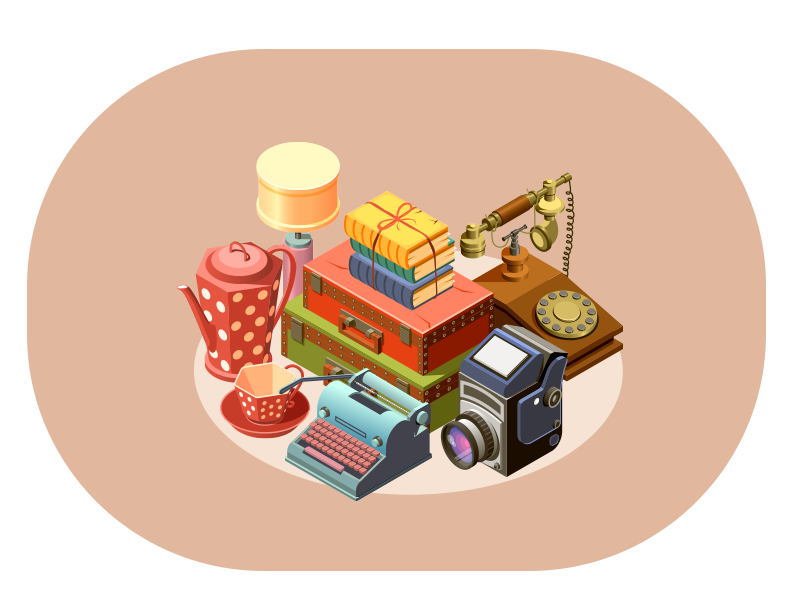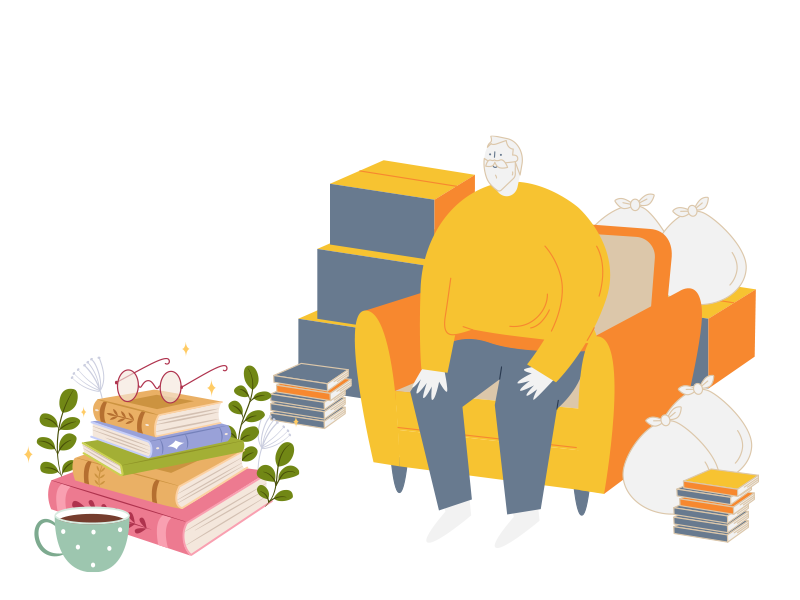What causes hoarding
You notice that a loved one has started hoarding things in their home. As the problem worsens, you begin to realize something is not right. Eventually, your might learn that your loved one is suffering from a hoarding disorder.
By definition from the Mayo Clinic website, a hoarding disorder is “a persistent difficulty discarding or parting with possessions because of a perceived need to save them. A person with hoarding disorder could experience distress at the thought of getting rid of the items. Excessive accumulation of items, regardless of actual value, occurs.”
Recognizing how distressing it must be to see a loved one or even yourself dealing with a hoarding disorder, we thought it might serve as a source of relief if you had some understanding about what causes hoarding. In that spirit, the following information will address some of the personal conditions that can serve as causes of hoarding.
11+ Years Experience dealing with Hoarding
Need someone to talk to that understands hoarding?
Get a Free Hoarding Clean-up Estimate.
Or call us today for immediate assistance.
Causes of Hoarding

As you might wonder, the causes of hoarding typically evolve from some form of psychological or mental health issue. What’s not always clear is the catalyst for the psychological or mental health issues that became what causes hoarding. The following are what we believe are six primary causes of hoarding, though there could well be other causes.
1. Trying to cope with personal feelings
Trying to cope with the things that happen in day-to-day life can be very stressful. Most people don’t always know when life is going to throw them a curveball. When it happens a bit too often to one particular person, that person will often go in search of ways they can cope with the circumstances of their life.
One way people cope with life’s difficulties is by hoarding things. In their mind, they seem to get a sense of comfort from their efforts to “collect” whatever it is they choose to collect.
A lot of mental health professionals will be quick to point out that such individuals are seeking ways to show they can control what is happening in their lives. The hoarder considers their hoarding behaviors to be representative of the fact they can choose to do something and do it successfully.
2. Issues from childhood
Children are very impressionable and vulnerable. When things happen to them early in their young lives, they tend to look for ways to keep those things from affecting them in the future as they grow up and mature.
When childhood experiences create the need to hoard, the circumstances that might cause those feelings often include one or more of the following:
- Being deprived of or not having access to things they really want or need
- Seeing their parents/family suffering from not having enough of something they want or need
- Losing treasured items or having them taken away as a punishment or because of theft
- Feeling neglected or inadequate because they don’t have as much stuff as others in their peer groups
It’s worth pointing out that the target of these issues might be money, food, clothing, or personal security.
3. Difficulty with organizing
When someone has difficulty throwing things away or accumulating things/pets, it usually evolves because the individual has problems making decisions. The hoarding disorder is created because their inability to decide what and when to toss things eventually leads to them simply holding onto everything.
In a way, perfectionism can also lead to a hoarding disorder. In someone’s quest to be perfect, it’s highly likely they will fail. When they do fail, they capitulate, getting the sense they are losing control, which results in decision-making issues. Again, the hoarding serves to represent they are back in control.
4. Childhood/Adult Trauma or Loss
Life is difficult at times. Eventually, everyone is exposed to some kind of trauma or loss. This is in reference to trauma/loss experiences like:
- Sexual/emotional/mental/physical abuse
- Loss of important relationships (friends or lovers)
- The death of a loved one or even pet
- Involvement is a natural disaster (tornado, flood, fire, earthquake)
- The battling of chronic health issues
These types of traumatic events often lead to an emotional/mental/psychological imbalance. When someone has emotional/mental/psychological issues, it can manifest into all sorts of disorders, including a hoarding disorder.
5. Family historic issues

It’s quite natural for people to grow up emulating the things they learned from family members. Many times, what people end up emulating are the behaviors they see others habitually exhibiting.
As an example, a child might see that mom or dad have a habit of saving certain things. Since it’s mom and dad, they see this “hoarding behavior” as being accepted and normal behavior. When that child grows up, they do so believing they should do what their parents did. Where this becomes a problem is when they had no way of knowing the behavior was destructive at that time, and it holds the potential of being destructive to them now.
Here is what is very interesting about this phenomenon. It isn’t until the clutter in their own home becomes unbearable that they begin to see how bad the clutter was in their childhood environment.
Is there a genetic component at work here? While there is no evidence that a “hoarding” gene exists, it’s not crazy to think any kind of psychological disorder might have its root in genetic hereditary. That is especially true if several family members exhibit the same behaviors.
6. Actual mental health issues/disorders
Unfortunately, far too many people are living with a legitimate mental/emotional psychological disorder. Sometimes, the existence of one mental issue will open the door to other mental health issues such as a hoarding disorder. People with such disorders seem to lack the ability to discern between good and destructive behaviors.
We would be remiss to not point out that some people view their hoarding behavior as a means for coping with other disorders like:
- Depression
- Anxiety
- Post Traumatic Syndrome Disorder (PTSD)
- A legitimate obsessive-compulsive personality disorder (OCPD)
- Bipolar disorder
- Psychosis and schizophrenia
What we know is substituting one bad behavior for another is not a good way to cope with the original behavior.
If you or a loved one are dealing with a hoarding disorder, we hope you get the opportunity to seek help.
As you learn to deal with your hoarding disorder, there might come a time when you need help with the cleanup and disposal of trash and garbage. That’s one of the services we provide at Clutter Trucker. To schedule cleanup and discuss what our services include, we suggest you give us a call at your earliest convenience.

About Jennifer Hanzlick
Clutter Trucker is a Denver-based hoarding clean-out company founded by Jennifer Hanzlick. Jennifer leveraged 15 years of corporate experience in to start the company in 2008. Her mission is to help and educate individuals and their loved ones who have hoarding disorder. A featured speaker at Ted X Boulder, Jennifer works directly with community and non-profit organizations to boost public awareness about the condition. To that end, she founded the Colorado Hoarding Task Force in 2015.
 720-982-7856
720-982-7856







